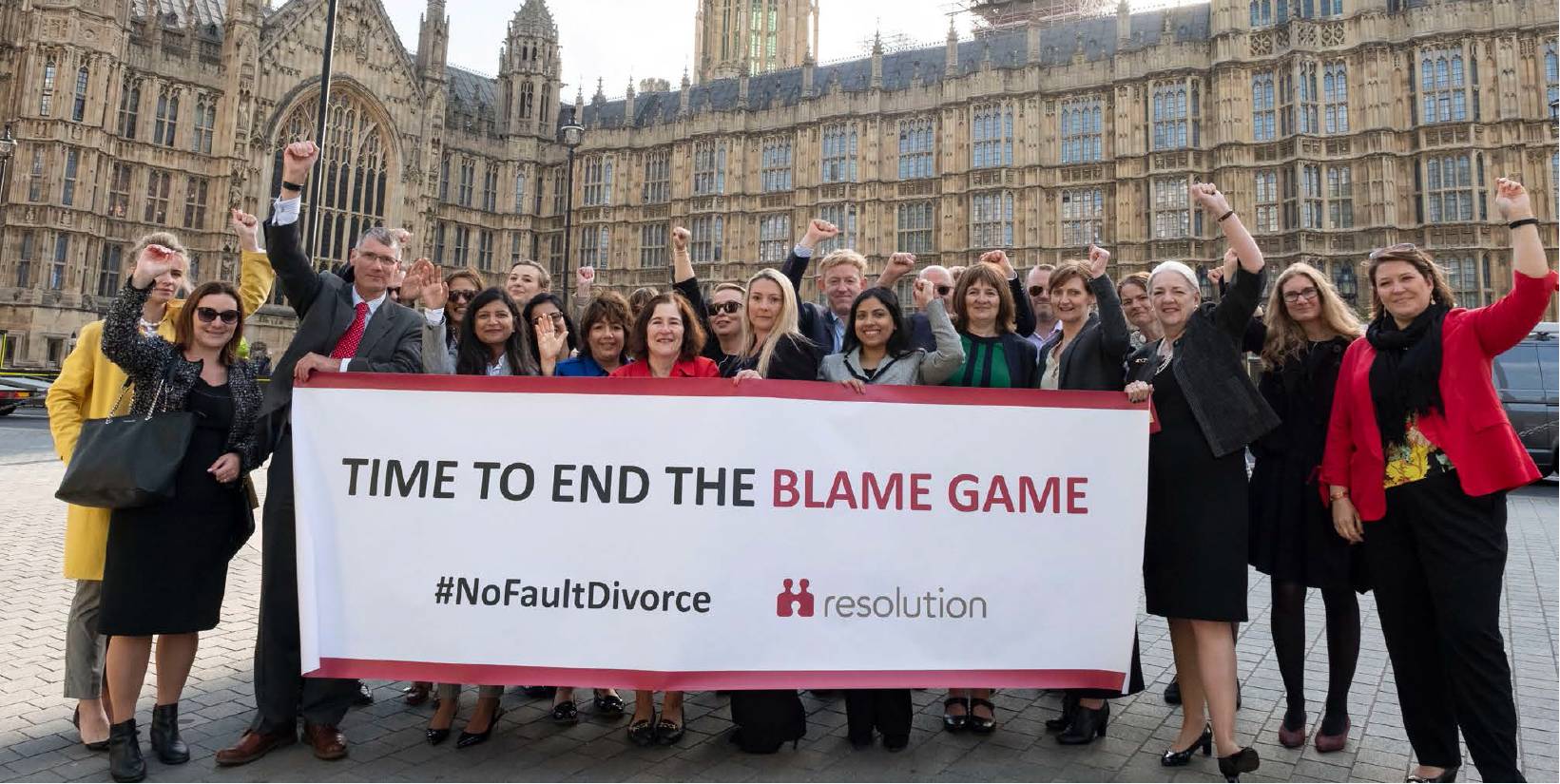Family law
Resolution: ending the blame game
No-fault divorce is finally set to become reality after MPs voted overwhelmingly in favour of the Divorce, Dissolution and Separation Bill this summer.
 About the author: Juliet Harvey FCILEx is National Chair of Resolution.On 25 June, the Divorce, Dissolution and Separation Bill received royal assent, officially becoming an act of parliament and went onto the statute book, marking the culmination of a three decadeslong campaign by family law professionals to change our outdated divorce laws.
About the author: Juliet Harvey FCILEx is National Chair of Resolution.On 25 June, the Divorce, Dissolution and Separation Bill received royal assent, officially becoming an act of parliament and went onto the statute book, marking the culmination of a three decadeslong campaign by family law professionals to change our outdated divorce laws.
The move to abolish fault-based divorce is the biggest shake-up to divorce laws in over 50 years and represents a progressive step forward as separating couples will no longer have to assign blame or endure a lengthy separation in order to be granted a divorce.
The case against fault-based divorce
Just imagine the situation: a couple who have made the painful decision to end their marriage each takes advice, and the first thing they are asked to do is state who was at fault for the relationship breakdown, usually on the ground of adultery or behaviour. Now imagine being the lawyer, who, as a Resolution member, has pledged to uphold a Code of Practice to ensure matters are resolved amicably and you can see the rub. It is rather difficult to foster a non-confrontational approach to proceedings, if one of the first acts to kick-start a divorce involves finding someone to blame.
Fault-based divorce represents a barrier to Resolution’s belief that the process of separating, and sorting out finances and child-related issues, should be done in a way that minimises conflict and keeps the best interests of any children at the heart of proceedings. If not, the effect on children can be particularly devastating.
A Resolution commissioned YouGov poll, released during Good Divorce Week 2018, found that 79% of the population agree that conflict from divorce or separation can negatively affect children’s mental health, a figure rising to 87% among those surveyed whose own parents divorced during their childhood. In addition, 77% of those surveyed also said that conflict could affect a child’s academic performance and a further two-thirds felt social interactions and the ability to form healthy romantic relationships were also jeopardised by an acrimonious separation.
The campaign
Former National Chair of Resolution, Nigel Shepherd, has been dubbed ‘Mr No-Fault Divorce’ due to his unwavering commitment - over 30 years - to changing our divorce laws. ‘I’ve been campaigning for this change to the law for most of my career, but the latest phase of our campaigning kickstarted in 2016, when we held a lobby day at the Houses of Parliament’, he said. ‘Before that, no one outside the family justice sector was talking about no-fault divorce.’
Over 150 Resolution members from across the country descended on Westminster in November that year to make the case for reform to MPs, many of whom were simply unaware of the problems caused by fault-based divorce. This was followed by Resolution’s intervention in the case of Mrs Owens, whose divorce was denied by the Supreme Court on the ground that her husband’s behaviour was not unreasonable enough, therefore forcing her to remain in the marriage against her will (Owens v Owens [2018] UKSC 41, 25 July 2018). The case attracted national and international media attention, compelling ministers to listen and modernise our outdated divorce laws with the Divorce, Dissolution and Separation Bill.
